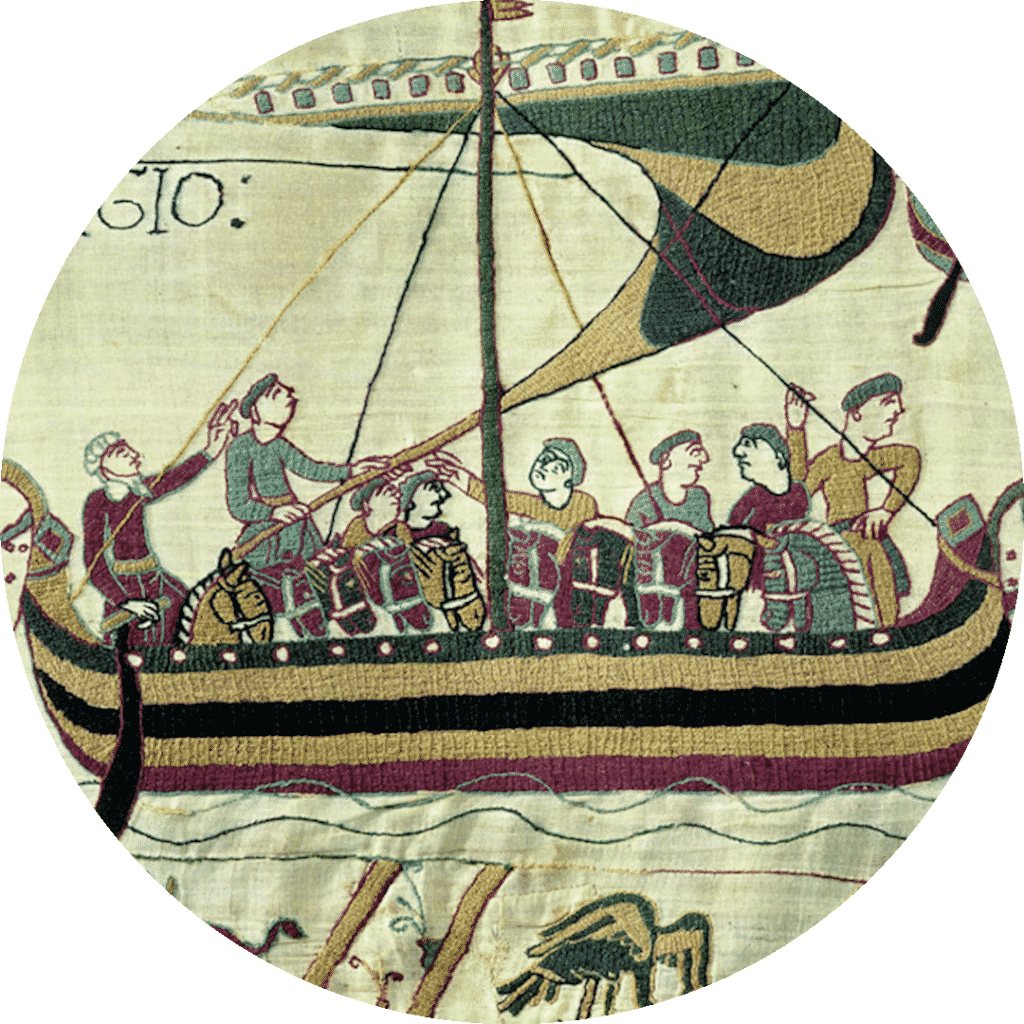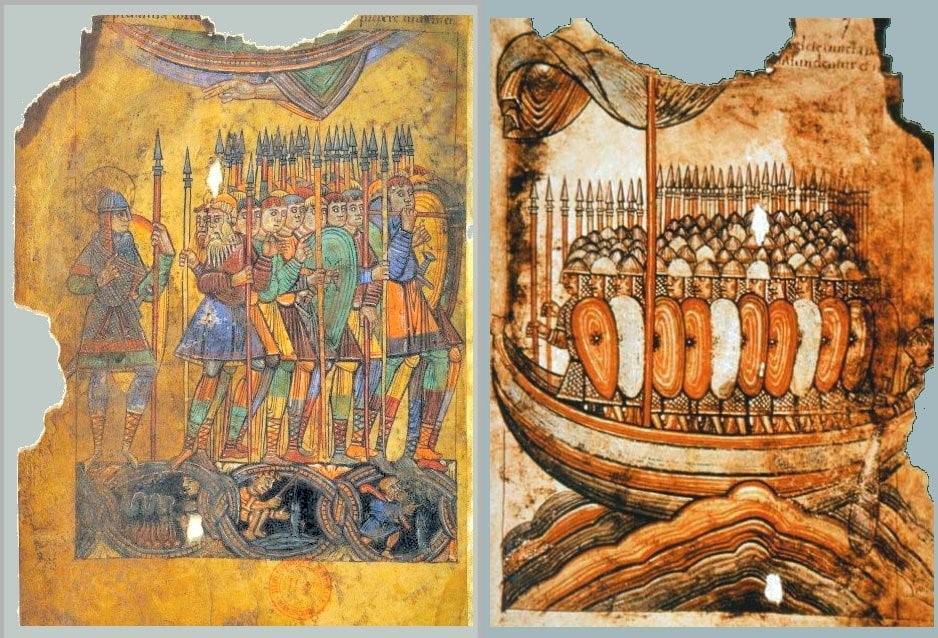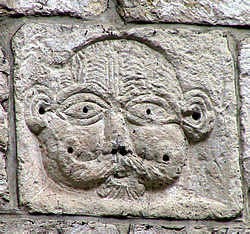
Ragenold, a Viking becomes King of Nantes
Viking literally means "person who practises piracy". The Vikings were true explorers and adventurers. Great warriors and skilled navigators, they sailed the seas of Europe and beyond to conquer new territories.
A few years after the capture of Nantes, the Vikings settled on the island of Bièsse, better known today as Ile de Nantes, and remained there for almost a century. This was the beginning of a century of confrontations between the Bretons and the Scandinavians.
In the 880s, the Vikings took advantage of the chaos that reigned between the Breton populations to annex part of this territory.
In 913, the Vikings took advantage of the fact that Brittany was left without a legitimate sovereign to multiply their brutal and devastating raids.
In 919, the bellicose Viking chieftain Ragenold landed with his fleet of drakkars on the Breton coast and took the city of Nantes. A fervent admirer of Rollon who succeeded in creating a Viking state in Normandy, Ragenold did not ravage the city and settled his men there, making the city "Namsborg" his new fiefdom. The notables and clergy fled the city and settled mainly in the United Kingdom.

After 5 months of battle with the army of Charles the Simple (King of Western Francia) who is trying to retake the city, Ragenold imposes its authority and proclaims itself Viking King of Nantes.
Ragenold used Nantes as a military base and continued his attacks against the Franks, assaulting and pillaging Aquitaine and Auvergne in 923, then Burgundy in 924. The Franks attempted a new siege of Nantes in 927, but Ragenold held out and obtained the transfer of the city to the Vikings in exchange for the end of the raids.

Ragenold reigned over Nantes until his death around 930.
He probably died of illness, but legend has it that he died following an intervention by St. Benedict in his sleep: "In what did I offend you, Rainaldus, that you should come and disturb me and my people in our own home? But know that from now on I will take care and stop you in your plans and give back to the servants of Christ, and to my bones, the peace they need". Having said this, he touched the head of the still sleeping king with the bent staff he was holding in his hand, announced to him the coming end of his life and withdrew. Without further ado, Rainaldus ordered to decamp and return to his native land, but as soon as he got home he lost his life in a terrible storm."
In 936, Alain Barbetorte, returning from exile, annihilated the Vikings in the Saint Brieuc region. The following year, he crossed all of Brittany and took Nantes from the Vikings, forcing them to return to their ships on the Loire and flee.

